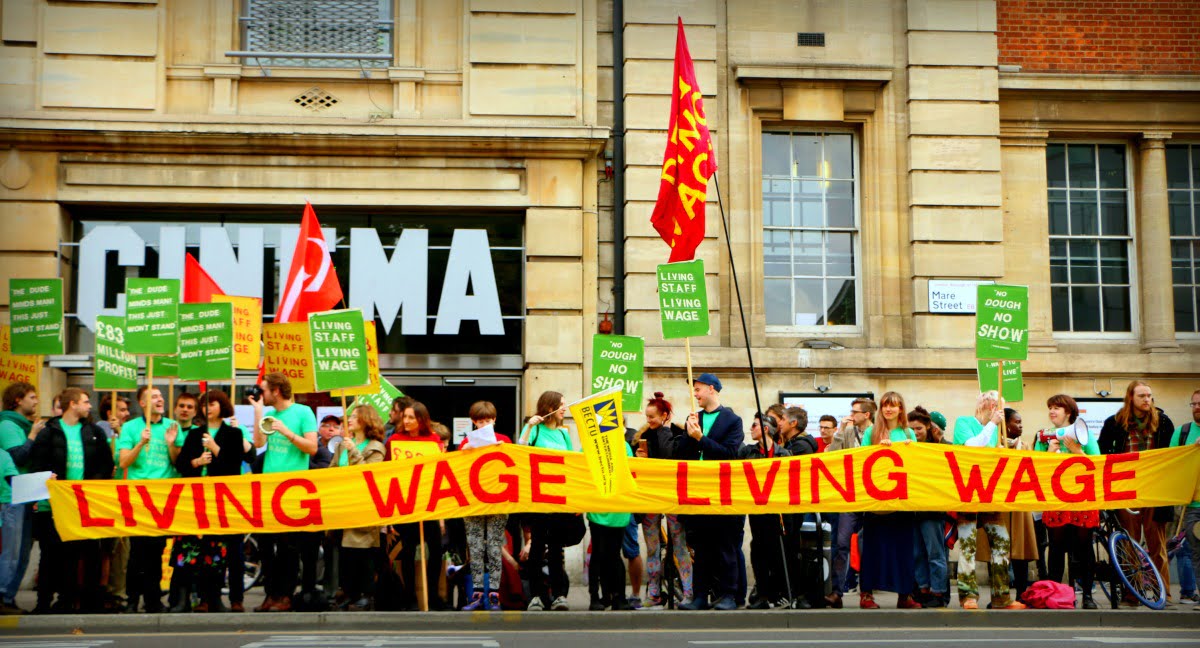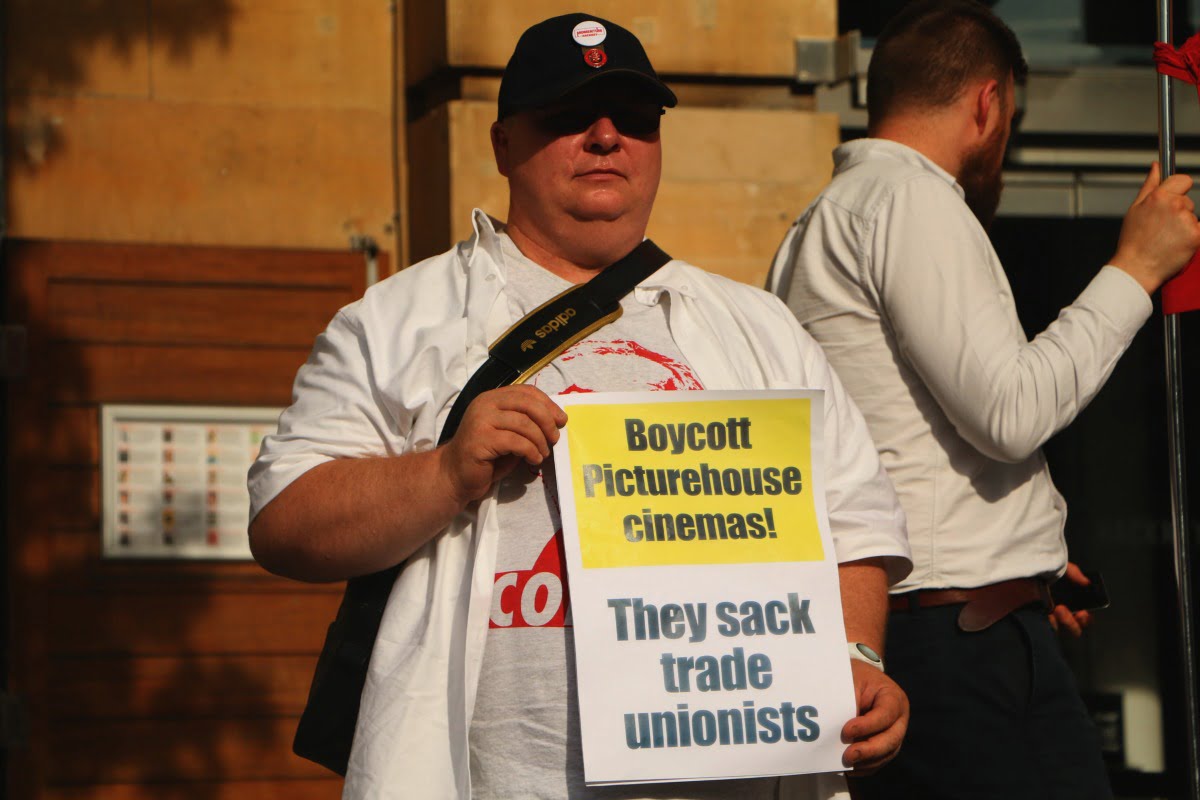The struggle of Picturehouse workers for decent pay and conditions continued last week, on Friday 7th July, with co-ordinated strike action across five London branches of the cinema chain. The Picturehouse living wage campaign provides important lessons for the whole labour movement on how to fight the scourge of low pay and declining workplace organisation.
The struggle of Picturehouse workers for decent pay and conditions continued last week, on Friday 7th July, with co-ordinated strike action across five London branches of the cinema chain.
Since action began at the Ritzy cinema in Brixton last September, the Picturehouse workers’ campaign for the London living wage has spread and gathered national attention, highlighting the pernicious prevalence of low pay and lack of workers’ rights in modern-day Tory Britain.
The main demand of the campaign is for all Picturehouse staff to receive at least the living wage for London – an independently assessed rate, currently at £9.75 per hour, calculated to be the minimum needed to meet the (ever-rising) costs of living in one of the world’s most expensive cities.
Alongside this demand, the cinema workers – organised in the BECTU sector of the Prospect union – are also calling for proper sick pay, as well as company maternity / paternity pay.
In several of the London branches, BECTU members are striking simply for the right to union recognition. Similarly, one of the main demands of the latest strike is for an end to the victimisation of trade unionists, following the recent sacking of four union reps at the Ritzy – a scandalous attempt by Picturehouse management to intimidate striking staff, as highlighted by several Labour MPs in a letter to the Guardian and during the most recent PMQs at Westminster. As a BECTU statement stressed, this blatant aggressive act of victimisation “could escalate the already entrenched industrial dispute between BECTU and Picturehouse”.
Supported by high profile figures within the film industry, such as director Ken Loach and actor Ian McKellen, the cinema workers are now, alongside co-ordinated strike action, also calling for a public boycott of the Picturehouse chain, which is owned by the giant multinational cinema company, Cineworld.
Despite making a profit of £84 million in 2015, Cineworld bosses are refusing to pay staff the living wage, or even to meet with BECTU members to discuss their demands. Whilst management threaten and intimidate staff for daring to organise and strike for a decent wage, Cineworld CEO, Mooky Greidenger, is laughing all the way to the bank, taking home £1.2 million in 2015 – the equivalent of £575 per hour.
In order to maximise their strength, striking Picturehouse workers across London joined their comrades at the Crouch End venue last Friday, bolstering the picket line outside the latest branch to join the campaign. Meanwhile, at other cinemas, local activists leafleted and rallied in support of the strike, encouraging customers to boycott the Picturehouse and urging temporary scab workers not to enter.
The response in Hackney was overwhelming positive, with drivers hooting as they went by and a number of cinemagoers turning around and taking their money elsewhere after hearing the news about the Picturehouse management’s exploitative and bullying behaviour.
Now in its tenth month, the Picturehouse living wage campaign is an inspiration for the whole labour movement, and particularly for young workers everywhere. These striking cinema staff are generally relatively young, and have learnt through their own harsh experiences the importance of organisation and solidarity. They have fought tirelessly to unionise workplaces and spread the strike, now involving staff at six Picturehouse venues, whilst using social media and outreach to build links with other workers, unions, and local communities.
By taking a lead with militant action, these workers have helped to boost BECTU membership in all Picturehouse sites by 50% since the start of the campaign, with a unionisation rate of around 90% in the Brixton Ritzy where the struggle has been going on for longest. This demonstrates an important lesson for the trade unions in general, which have overall seen a decline in membership over the years as a result of passivity and timidity from union leaders.
Alongside other recent struggles at companies such as Deliveroo, the Picturehouse strikes have demonstrated the way forward in the fight against the scourge of low pay that now afflicts so many in the gig economy and in other precarious jobs.
The whole of the labour movement must now take up this issue and fight to put an end to union victimisation, pitiful pay, and zero-hours contracts – a fight not only against the brutal bosses, but against their friends in the Tory Party also and the exploitative capitalist system that they defend.







